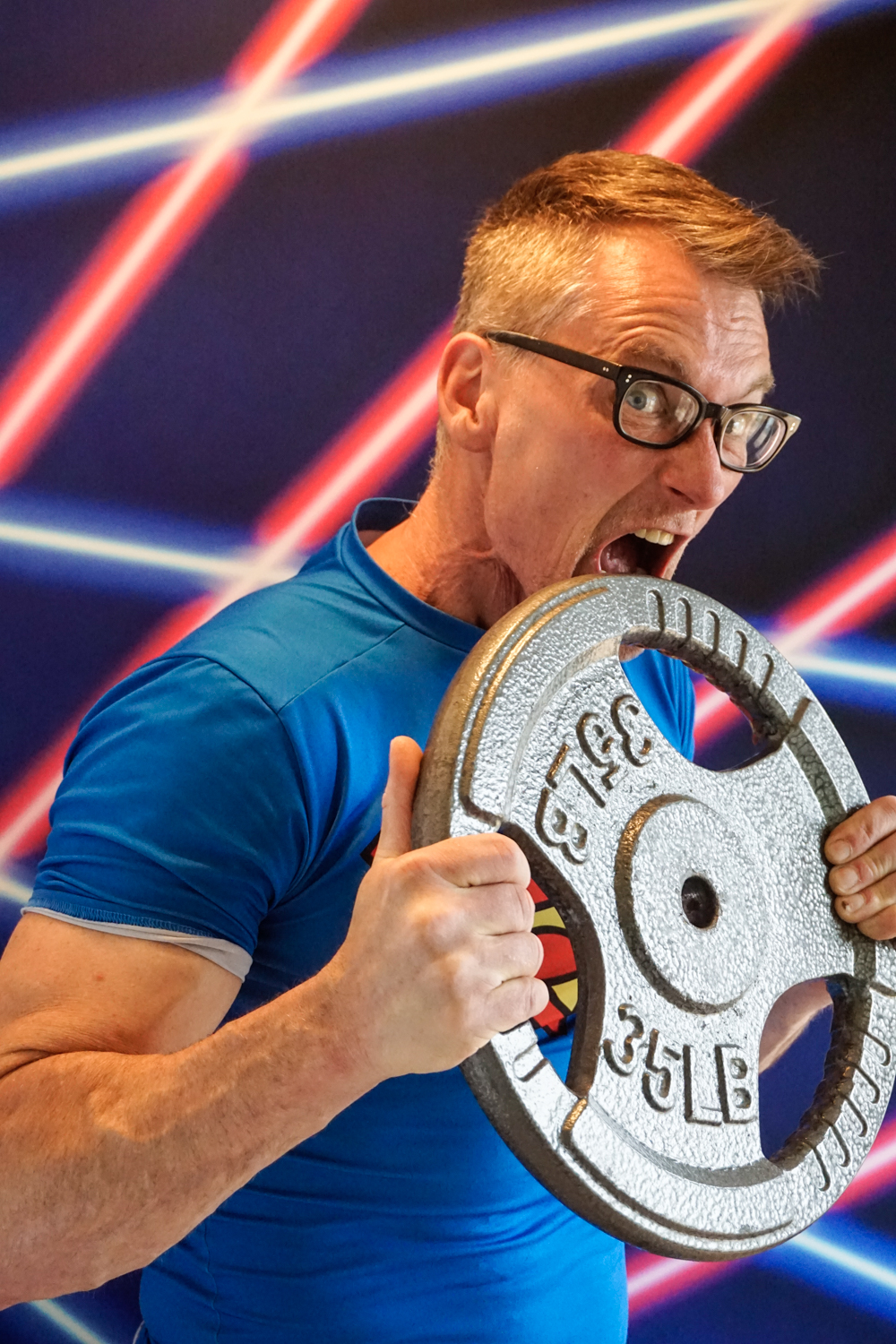
Steven Csorba, head and neck cancer survivor, iRSM patient and local artist, will be sharing his story at the iRSM Research Forum this Wednesday afternoon alongside world-renowned researchers from iRSM (photo supplied).
(Edmonton) Steven Csorba thinks everyone who gets diagnosed with cancer should receive a superhero t-shirt.
"Rehab needs to start the day you're diagnosed, even before surgery. Patients need to feel empowered. Someone needs to give them a Superman or Wonder Woman shirt and say, 'You're empowered! You can make your body stronger. You can do this!'" says Csorba, a local artist who was diagnosed with stage 3 throat and neck cancer in 2003 and in 2005 became one of the Institute for Reconstructive Sciences in Medicine's earliest jaw reconstruction patients.
After everything Csorba has gone through - multiple surgeries, radiation therapy, losing his job, losing his teeth, losing the ability to eat and speak - the father of three boys remains empowered, and lives to empower others.
"Helping charities, donating my time and art and just plain helping people has always been what I did. I always understood the importance in helping others," says Csorba, who's donated over $1 million worth in art to charities and continues to encourage fellow cancer survivors to work out, eat well and live a healthy lifestyle.
Csorba is also actively involved with research at the Institute for Reconstructive Sciences in Medicine (iRSM), a joint initiative of Alberta Health Services, Covenant Health and the University of Alberta. iRSM specializes in osseointegration technologies - implant technology - to patients with head and neck defects resulting from cancer, trauma and congenital conditions.
After his initial 14-hour surgery to remove the tumours, Csorba spent numerous hours at the iRSM working with a team of surgeons, maxillofacial prosthodontists, speech-language pathologists, dietitians, technicians and researchers.
"I had to learn how to cope with not having saliva. I would wake up every half hour to drink water," explains Csorba. "I couldn't eat properly or talk. I also spent the next eight years rebuilding my jaw."
Csorba did gain the ability to speak again, thanks to speech-language pathologists at iRSM and his own will to communicate.
"90 per cent of speech is the desire to be understood. The doctors had to remove 90 per cent of the physical tools for speech, rebuilding my face with titanium, pins and screws, knowing I only need 10 per cent of those tools to speak again."
Indeed he did learn to speak again. Today, Csorba travels to various cities to talk about his journey and the treatments and research at iRSM. He will be sharing his story and art at the iRSM Research Forum on June 1 at 2:00 p.m. in 2-44 Corbett Hall at the University of Alberta's Faculty of Rehabilitation Medicine. The Research Forum will feature Mickleborough researchers Dr. Martin Osswald, maxillofacial prosthodontist at iRSM, and Dr. Hadi Seikaly, head and neck surgeon and Functional Outcomes Program Co-director at iRSM.
"The story of Steven's journey is amazing and when you meet him you will experience someone who is full of life and inspirational, worthy of the tagline superhero," says iRSM's executive director, Dr. Mark Redmond. "His is one of many stories and we invite the public at large to come to the iRSM Forum to see and hear more and to spend time with patients, researchers, and caregivers. This is a great opportunity to learn how Alberta leads the world and teaches the world to heal through innovation and compassionate care."
For Csorba who still goes to iRSM regularly for procedures, this research that improves quality of life and patient outcomes is why he continues to take part in studies and interviews.
"I still always wake up feeling like I have an eight-inch rubber band around my neck, but that doesn't stop me from helping people and doing my art," he says. "It's important to get involved. I want to encourage fellow survivors to feel empowered to help the community and be a return on investment."
To register for the iRSM Research Forum, a free event open to the public, visit bit.ly/irsmforum.